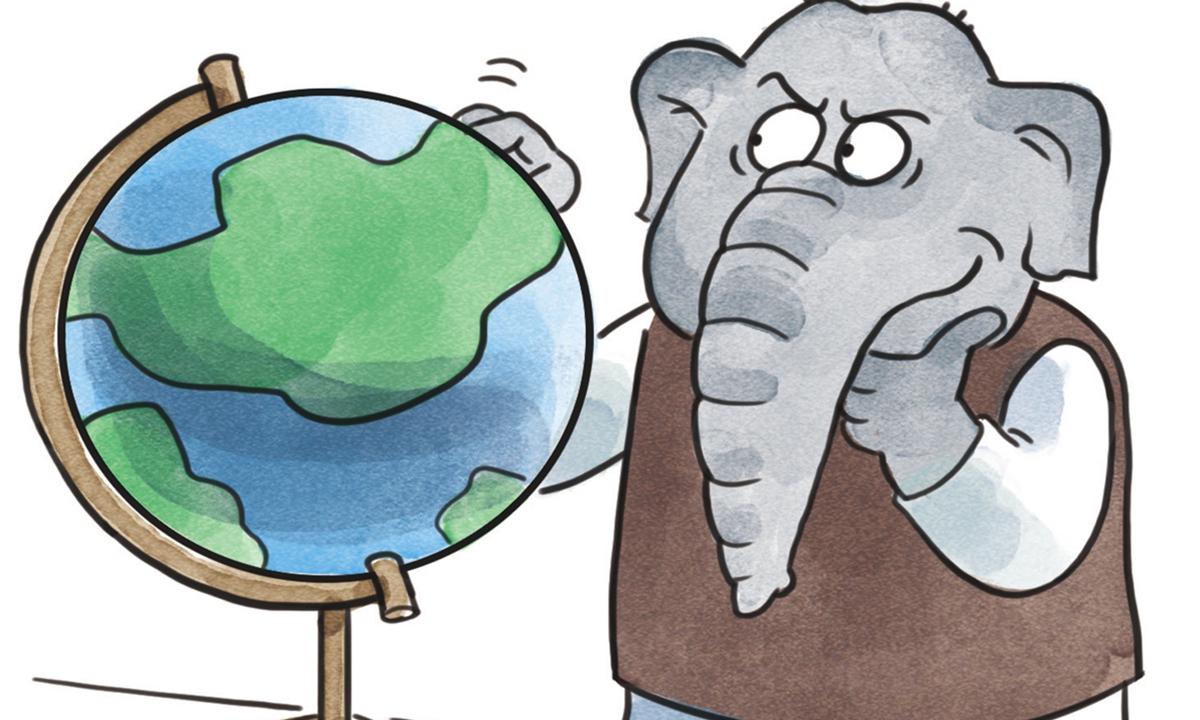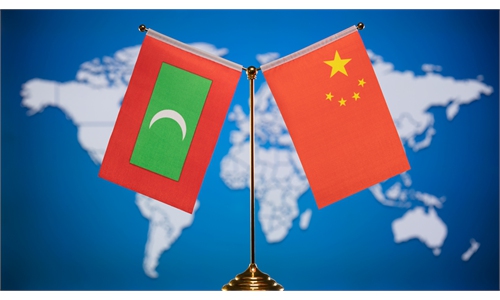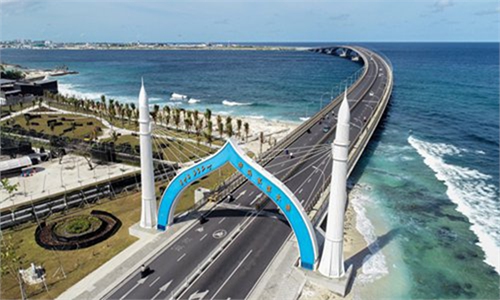
Illustration: Liu Rui/GT
Maldivian President Mohamed Muizzu is on his five-day state visit to China. From the Chinese perspective, we want to deal with countries like Maldives with full respect and treat them as an equal partner no matter their size.For the Maldives, China is an important partner in terms of power generation, desalination projects, and also infrastructure and connectivity projects. Furthermore, the Maldives also is very important to China for several reasons. The Maldives is definitely one of the most attractive tourist destinations for millions of Chinese tourists. Also, the Maldives will play a very important role, similar to countries like Sri Lanka, for the China-proposed Belt and Road Initiative.
The Maldives is an island nation located in the middle of the Indian Ocean, with many commercial shipping vessels going through its waters. The country occupies a unique geographical location in the middle of the Indian Ocean. The maritime transportation from different sides of the Indian Ocean will need to think about countries like the Maldives to facilitate transportation and logistics from all parties involved, as well as bring greater benefits to the people in the Maldives.
Furthermore, in the current world when global connectivity needs to be enhanced on a daily basis, communication on all levels needs to be integrated. Therefore, due to its geographical location, the Maldives can play a vital role as a hub not only in maritime transportation, but also in communication.
While the Maldives is extremely attractive and exotic to many people, it is also very fragile in the overall context of climate change. Therefore, many things need to be planned and executed ahead of time. This will require a lot of capital, effort and engineering capabilities. And China is well equipped to do its best to work with countries like the Maldives to beef up their defense against rising sea levels to make sure that their culture, civilization and way of life will be sustainable and survive the onslaught of the dire consequences of climate change.
As Muizzu embarked on his visit to China, many Indian media noted that he became the first Maldivian president to visit China before India, adopting an "'India-out' policy" while making a "pro-China tilt."
India has a distorted mentality. India views itself as the dominant country on the subcontinent of South Asia. However, it should give up any residual dream of controlling the Indian subcontinent. The reality is quite different. Other countries, as well as sharing some common features with India, are also extremely diverse.
I don't think it will be in India's own interest to treat these countries as if they are subordinated to India. Each of these countries is a very important member of the United Nations. They have their full sovereignty and territorial integrity and they should demand equal treatment rather than being subjugated to another country.
The Maldives is, relatively speaking, very small in terms of geographical size and population. The country is very fragile in terms of ecological environment, rising sea levels and the need to fight off the consequences of climate change. And it also depends on foreign trade and tourism. Therefore, for the Maldives, to be friends with all and enemy with none should be very much appreciated. The Maldivians want to have peace, develop their economy, promote their tourism and increase their living standards. This is something that all of us need to fully respect.
Countries like India should respect the special nature of a country like the Maldives and deal with it with full respect as a sovereign, independent country. It is completely up to the Maldives government to decide which country should be visited by the new president of the Maldives. This is completely an internal decision for the Maldives, not a decision to be imposed upon the Maldives by any other country.
The stationing of Indian troops in the Maldives should be ended as quickly as possible. The Indian troops went there for a particular reason, but that reason has disappeared since the normalcy in the Maldives has been restored. The Maldives government is fully capable of handling the situation in its own capacity rather than having to ask for intervention by the Indian troops. Therefore, the sooner Indian troops withdraw from Maldives the better.
The author is a chair professor at Soochow University and Vice President of the Center for China and Globalization. opinion@globaltimes.com.cn


